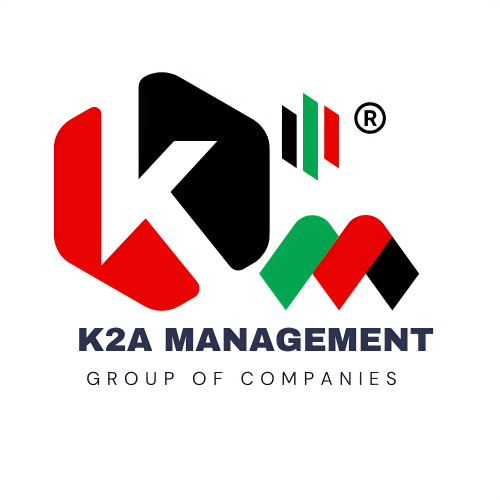Unveiling the Secrets of Successful ISO Consultancy for Business Excellence
- K2A Management

- Jul 16, 2025
- 3 min read
In today's competitive commercial landscape, businesses are not just attempting to sell products and services; they are striving for excellence by adhering to internationally recognized standards. One essential way to enhance your business is through ISO consultancy. ISO (International Organization for Standardization) certifications serve as global benchmarks for quality and operational efficiency. When done right, this structured approach can help organizations reach their goals and stand out in the market.
This post will explore the critical elements of effective ISO consultancy, including its benefits, processes, and how it can drive sustainable business excellence.
Understanding ISO Consultancy
ISO consultancy involves advisory services that help organizations achieve ISO certification. ISO consultants guide businesses in implementing standardized practices tailored to their specific industry needs. Some of the major ISO standards include:
ISO 9001: Focuses on quality management systems, which helps businesses ensure product quality and customer satisfaction.
ISO 14001: Targets environmental management, offering a framework for companies aiming to reduce their ecological impact.
ISO 45001: Addresses occupational health and safety, focusing on enhancing workplace safety and reducing incidents.
An ISO consultant’s role goes beyond just explaining requirements. They develop customized roadmaps that ensure best practices are woven into daily operations, not just checked off for certification purposes.
The Importance of ISO Consultancy
Investing in ISO consultancy offers several advantages that can significantly enhance an organization’s performance and reputation.
One major benefit is identifying gaps in existing operations. For instance, a client we worked with in the manufacturing sector improved their production efficiency by over 20% after a thorough gap analysis revealed inefficiencies in their supply chain logistics.
Another primary advantage is improved customer satisfaction. ISO certification not only demonstrates a commitment to quality but also boosts consumer trust. Research shows that over 70% of consumers prefer to purchase from companies with recognized certifications, leading to increased loyalty and sales.
Moreover, ISO consultancy enhances regulatory compliance. Businesses that adhere to ISO standards typically see a 30% reduction in compliance-related fines, enhancing their brand reputation and credibility in the marketplace.
Key Steps in the ISO Consultancy Process
Initial Consultation
The consultancy journey begins with an initial meeting where the consultant learns about the organization’s unique needs, challenges, and current readiness for ISO certification.
Gap Analysis
A comprehensive gap analysis follows the initial meeting. This step pinpoints deviations from ISO standards, paving the way for targeted improvements.
Implementation of Best Practices
After identifying gaps, the consultant collaborates with the organization to implement changes. This can include rewriting policies, conducting training sessions, and establishing data collection methods for ongoing evaluation.
Internal Audit
Before the formal certification audit, an internal audit assesses compliance with the new procedures. This step is essential for uncovering any issues that need addressing prior to the official evaluation.
Certification
Finally, if the internal audit reveals satisfactory results, the organization prepares for the formal certification audit by an accredited body. Successfully passing this audit results in receiving ISO certification, a significant milestone.
Best Practices for Engaging an ISO Consultant
To get the most out of ISO consultancy, businesses should follow these guidelines:
Look for Experience and Accreditation: Ensure the consultant has a successful history of helping organizations in your industry achieve ISO certification.
Tailored Approach: Choose a consultant who offers personalized strategies that align with your organization’s specific objectives rather than applying a generic framework.
Training Facilitation: A good consultant will provide staff training to instill a culture of compliance and continuous improvement.
Ongoing Support: Select consultancy services that extend beyond certification to assist in maintaining compliance and encouraging continual enhancement.
Common Misconceptions about ISO Consultancy
Despite the benefits of ISO consultancy, there are prevalent misconceptions that may hinder businesses from seeking assistance.
"ISO Certification is just a paperwork exercise"
This belief overlooks the transformative impact of ISO standards. Implementing ISO practices cultivates a culture of quality, rather than merely fulfilling paperwork requirements.
"ISO is only for large corporations"
In reality, ISO standards benefit organizations of all sizes. Numerous small and medium-sized enterprises have reported significant quality improvements and operational efficiencies after achieving ISO certification.
"Once certified, it’s one and done"
ISO certification requires ongoing effort. Regular audits and continuous improvements are essential to maintain compliance and fully leverage the benefits of certification.
Final Thoughts
ISO consultancy plays a crucial role for businesses aspiring to achieve excellence. By providing valuable insights and structured guidance, ISO consultants empower organizations to adopt best practices, improve customer satisfaction, and embrace continuous enhancement.
Investing in ISO consultancy means more than just obtaining a certification; it represents a commitment to fostering a culture of excellence that drives innovation and competitive advantage.
Whether you are a startup or an established enterprise, consider how ISO consultancy can steer your organization toward sustained success.

As business landscapes evolve, adopting ISO standards through professional consultancy ensures that organizations remain competitive and thrive in today's dynamic market.
.png)

Comments